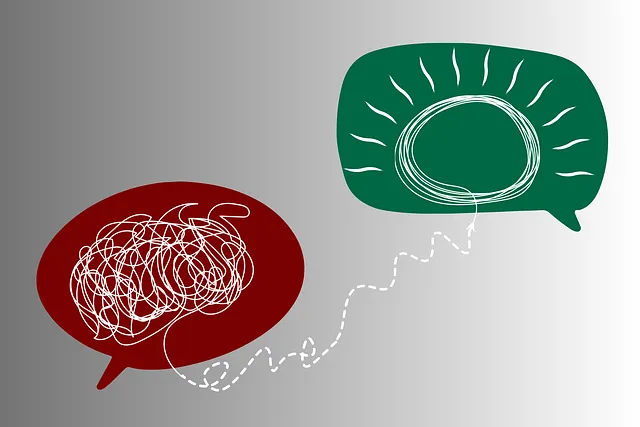Broomfield Kaiser Permanente mental health center prioritizes culturally sensitive care, recognizing its community's diverse tapestry. Through their Community Outreach Program and risk management planning, they actively connect with diverse populations and incorporate cultural beliefs into therapeutic practices. This approach ensures effective, tailored treatment, strengthens patient-provider relationships, and improves mental wellness outcomes for all patients, contributing to the center's overall success.
In an increasingly diverse society, cultural sensitivity in mental healthcare is paramount. This comprehensive guide explores how the Broomfield Kaiser Permanente mental health center navigates cultural diversity, emphasizing its impact on patient care and outcomes. We delve into practical strategies for professionals to enhance cultural competence and present successful case studies from the Broomfield Kaiser Permanente mental health center. By understanding and respecting diverse cultural contexts, healthcare providers can offer more effective, inclusive support.
- Understanding Cultural Diversity in Mental Healthcare at Broomfield Kaiser Permanente
- The Importance of Cultural Sensitivity: Impacts on Patient Care and Outcomes
- Strategies for Culturally Competent Practice: A Guide for Mental Health Professionals
- Case Studies: Successful Implementation of Cultural Sensitivity at Broomfield Kaiser Permanente Mental Health Center
Understanding Cultural Diversity in Mental Healthcare at Broomfield Kaiser Permanente

Broomfield Kaiser Permanente mental health center recognizes and embraces the rich tapestry of cultural diversity within its community. This awareness is integral to providing culturally sensitive care, ensuring that every patient receives treatment tailored to their unique background and needs. The center’s approach involves not only understanding various cultural beliefs and practices related to mental health but also actively incorporating these insights into therapeutic modalities. For instance, therapists may adapt stress reduction methods to accommodate cultural preferences, making the treatments more accessible and effective.
Through its dedicated Community Outreach Program Implementation, Broomfield Kaiser Permanente fosters connections with diverse populations. This initiative enables mental health professionals to engage with communities they serve, learn about local cultural nuances, and develop targeted interventions. Moreover, Risk Management Planning for Mental Health Professionals is an integral part of this process, ensuring that cultural sensitivity is not only understood but also practiced consistently, thereby creating a safer and more inclusive environment for both patients and practitioners.
The Importance of Cultural Sensitivity: Impacts on Patient Care and Outcomes

Cultural sensitivity is a cornerstone of effective mental healthcare practice, especially at diverse institutions like Broomfield Kaiser Permanente’s mental health center. Understanding and respecting patients’ cultural backgrounds, traditions, and beliefs can significantly impact patient care and outcomes. It ensures that individuals from various ethnic, racial, and social groups receive tailored support that resonates with their unique needs.
By incorporating cultural sensitivity, the mental health center fosters a safe and inclusive environment, enhancing patient-provider relationships. This approach not only encourages open communication but also enables mental wellness coaching programs to be developed with relevant guidance, such as journaling exercises focused on personal narratives and resilience building. Such initiatives contribute to improved treatment adherence and overall mental wellness outcomes for all patients served at the center.
Strategies for Culturally Competent Practice: A Guide for Mental Health Professionals

Mental health professionals at the Broomfield Kaiser Permanente mental health center understand that providing culturally sensitive care is paramount to effective treatment. To this end, they’ve compiled a guide with strategies for cultivating cultural competency. This involves actively listening to and understanding patients’ backgrounds, beliefs, and values, rather than imposing Western, individualistic perspectives. By incorporating elements like Mindfulness Meditation, which has roots in Eastern traditions, professionals can create a more inclusive environment that respects diverse cultural practices.
The center emphasizes the importance of educating oneself about different cultures, including learning about specific communities’ experiences, challenges, and strengths. This continuous learning approach fosters a deeper understanding that transcends superficial knowledge. Moreover, it encourages professionals to challenge their own biases and assumptions, ensuring they offer Confidence Boosting interventions tailored to each individual’s unique cultural context.
Case Studies: Successful Implementation of Cultural Sensitivity at Broomfield Kaiser Permanente Mental Health Center

At Broomfield Kaiser Permanente mental health center, the integration of cultural sensitivity has led to significant improvements in patient outcomes and satisfaction. Through a series of comprehensive case studies, the center has demonstrated how tailored interventions can address the unique needs of diverse patient populations. For instance, they’ve implemented self-care practices infused with cultural elements, such as mindfulness workshops that incorporate traditional healing rituals from various backgrounds, fostering a sense of belonging and empowerment among patients from different ethnic and cultural groups.
Moreover, staff training in empathy building strategies has been pivotal. This includes cross-cultural communication workshops, where clinicians learn to navigate language barriers, understand non-verbal cues, and appreciate the impact of cultural context on mental health experiences. Such initiatives have not only enhanced the quality of care but also promoted a more inclusive and welcoming environment, ultimately contributing to improved mental wellness for all patients served by Broomfield Kaiser Permanente.
Cultural sensitivity is a cornerstone of effective mental healthcare, as evidenced by Broomfield Kaiser Permanente’s successful implementation strategies. By prioritizing cultural competency, the Broomfield Kaiser Permanente mental health center enhances patient care and improves outcomes. This article has explored the importance of understanding cultural diversity, the impacts of sensitivity on patient experiences, and practical guides for professionals. The case studies presented demonstrate that embracing cultural sensitivity can lead to more inclusive and beneficial mental healthcare practices at institutions like Broomfield Kaiser Permanente mental health center.






